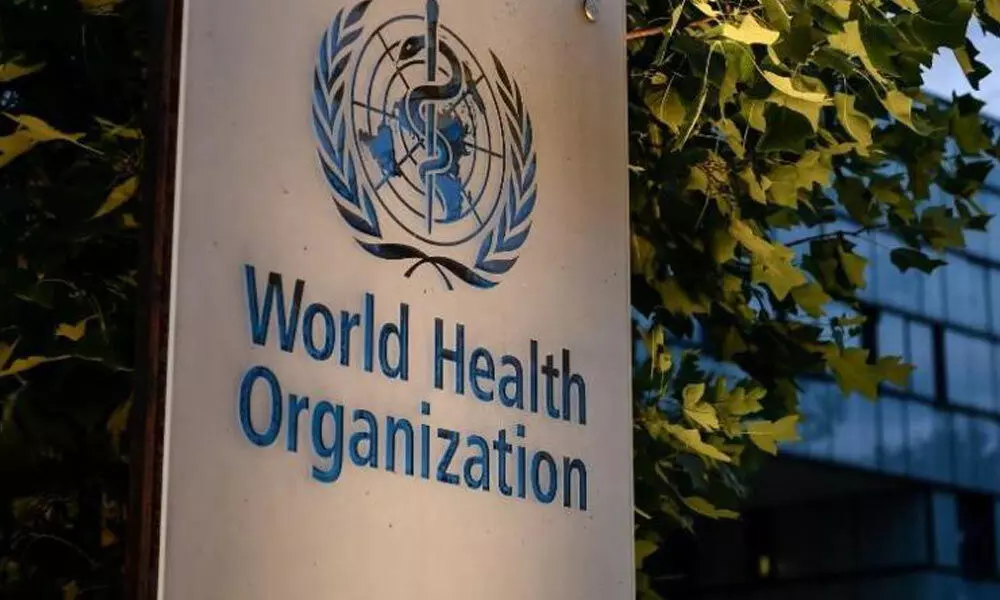Live
- Shiv Sena (UBT) to go solo in local and civic body polls in Maharashtra
- South Sudan targets 300,000 vulnerable people in new cholera vaccination drive
- Lal Bahadur Shastri Death Anniversary 2025: Honouring India’s Second Prime Minister and His Inspiring Words
- Pongal 2025: Celebrating Four Days of Gratitude, Harvest, and Togetherness
- The Countdown Begins: Ramayana: The Legend of Prince Rama Trailer Out Now
- AP to Attract ₹10 Lakh Cr Investment in Green Energy; Chandrababu
- Shiva, Sachin enter quarterfinals of men’s Boxing Nationals
- Clop lacks context, says DIG after video on conception lecture to schoolgirls goes viral
- Kolkata Police investigate Bengal-based NRIs abroad with fake Indian passports
- Chandrababu extends Sankranti greetings to Telugu people
Just In

World Health Organization (File/Photo)
Debate over the idea that the SARS-CoV-2 coronavirus emerged from a laboratory has escalated over the past few weeks, coinciding with the annual World Health Assembly, at which the World Health Organization (WHO) and officials from nearly 200 countries discussed the Covid-19 pandemic
Debate over the idea that the SARS-CoV-2 coronavirus emerged from a laboratory has escalated over the past few weeks, coinciding with the annual World Health Assembly, at which the World Health Organization (WHO) and officials from nearly 200 countries discussed the Covid-19 pandemic. After last year's assembly, the WHO agreed to sponsor the first phase of an investigation into the pandemic's origins, which took place in China in early 2021.
Most scientists say SARS-CoV-2 probably has a natural origin, and was transmitted from an animal to humans. However, a lab leak has not been ruled out, and many are calling for a deeper investigation into the hypothesis that the virus emerged from the Wuhan Institute of Virology (WIV), located in the Chinese city where the first Covid-19 cases were reported. On May 26, US President Joe Biden tasked the US Intelligence Community to join efforts to find SARS-CoV-2's origins, whatever they might be, and report back in 90 days. Divisive Covid 'lab leak' debate prompts dire warnings from researchers. Australia, the European Union and Japan have also called for a robust investigation into SARS-CoV-2's origins in China.
The WHO has yet to reveal the next phase of its investigation. But China has asked that the probe examine other countries. Such reticence, and the fact that China has withheld information in the past, has fueled suspicions of a 'lab leak'. For instance, Chinese government officials suppressed crucial public-health data at the start of the Covid-19 pandemic, and during the 2002–04 severe acute respiratory syndrome (SARS) epidemic, according to high-level reports.
However, there's not yet any substantial evidence for a lab leak. Why are scientists still considering it? Scientists don't have enough evidence about the origins of SARS-CoV-2 to rule out the lab-leak hypothesis, or to prove the alternative — that the virus has a natural origin. Many infectious-disease researchers agree that the most probable scenario is that the virus evolved naturally and spread from a bat either directly to a person or through an intermediate animal.
Most emerging infectious diseases begin with a spillover from nature, as was seen with HIV, influenza epidemics, Ebola outbreaks and the coronaviruses that caused the SARS epidemic beginning in 2002 and the Middle East respiratory syndrome (MERS) outbreak beginning in 2012. The possibility remains that SARS-CoV-2 escaped from a lab. Although lab leaks have never caused an epidemic, they have resulted in small outbreaks involving well-documented viruses.
A relevant example happened in 2004, when two researchers were independently infected by the virus that causes SARS at a virology lab in Beijing that studied the disease. They spread the infection to seven others before the outbreak was contained. In theory, COVID-19 could have come from a lab in a few ways. Researchers might have collected SARS-CoV-2 from an animal and maintained it in their lab to study, or they might have created it by engineering coronavirus genomes.
In these scenarios, a person in the lab might have then been accidentally or deliberately infected by the virus, and then spread it to others — sparking the pandemic. There is currently no clear evidence to back these scenarios, but they aren't impossible. This problem arises because nowadays science and technology as well businesses and politics have all got together in evolving the future of mankind.

© 2025 Hyderabad Media House Limited/The Hans India. All rights reserved. Powered by hocalwire.com







